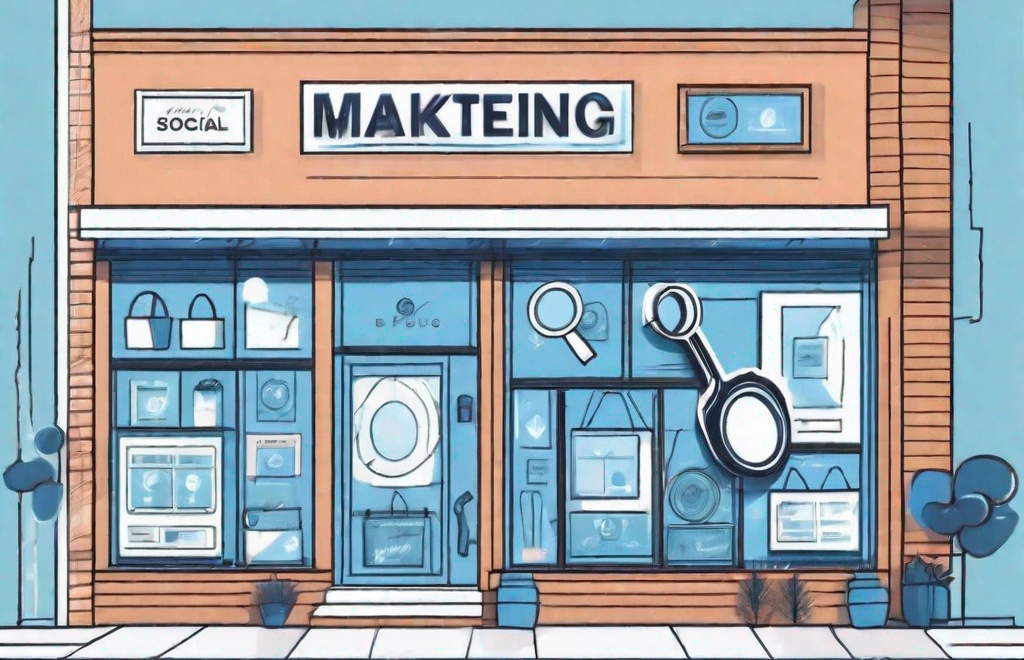Running a small business is no easy feat. From managing day-to-day operations to keeping up with industry trends, it can feel like there’s always something demanding your attention. That’s why many small business owners choose to work with a marketing agency. By partnering with the right agency, you can offload some of the marketing responsibilities and gain expert guidance to help your business thrive. But with so many agencies out there, how do you choose the right one for your specific needs? In this article, we will explore the key factors to consider when selecting a marketing agency for your small business.
Understanding Your Business’s Marketing Needs
Before you start searching for a marketing agency, it’s essential to have a clear understanding of your business’s marketing needs. What are your goals? Who is your target audience? By answering these questions, you can better communicate your expectations to potential agencies and ensure that they can meet your specific needs.
Identifying Your Target Audience
The first step in understanding your business’s marketing needs is identifying your target audience. Knowing who your ideal customers are will help you determine the best strategies for reaching and engaging them. Are you targeting millennials or baby boomers? Do you serve a specific geographic area? Understanding your target audience will guide your agency selection process.
For example, if your business is a trendy clothing store targeting millennials, you would want to focus on digital marketing strategies such as social media advertising and influencer partnerships. On the other hand, if your business is a local bakery targeting the surrounding community, traditional marketing methods like flyers and local newspaper ads may be more effective.
Understanding your target audience goes beyond demographics. It’s also important to consider their interests, preferences, and pain points. Conducting market research and analyzing customer data can provide valuable insights into your audience’s behavior and help you tailor your marketing efforts accordingly.
Setting Clear Marketing Goals
Once you have a clear picture of your target audience, it’s time to set clear marketing goals. What do you want to achieve with your marketing efforts? Are you looking to increase brand awareness, drive website traffic, or generate leads? By setting specific and measurable goals, you can evaluate potential agencies based on their ability to deliver results in line with your objectives.
For instance, if your goal is to increase brand awareness, you might want to focus on strategies like content marketing, social media campaigns, and public relations. On the other hand, if your main objective is to generate leads, you may prioritize tactics such as search engine optimization (SEO), email marketing, and paid advertising.
It’s important to align your marketing goals with your overall business objectives. By doing so, you can ensure that your marketing efforts contribute to the growth and success of your business as a whole.
Determining Your Budget
Another crucial factor to consider when choosing a marketing agency is your budget. It’s essential to determine how much you are willing to invest in your marketing efforts. Keep in mind that different agencies may have varying pricing structures, so it’s important to find one that offers services within your budget. Be transparent about your budget when discussing your needs with potential agencies.
When determining your budget, consider not only the cost of hiring a marketing agency but also the expenses associated with implementing marketing strategies. This may include costs for advertising platforms, content creation, graphic design, and marketing technology tools.
It’s worth noting that while it’s important to work within your budget, it’s also crucial to prioritize quality and expertise. Choosing a marketing agency solely based on price may result in subpar results and a waste of resources. Look for agencies that have a track record of success and can demonstrate their ability to deliver a return on investment.
In conclusion, understanding your business’s marketing needs involves identifying your target audience, setting clear marketing goals, and determining your budget. By taking the time to thoroughly assess these factors, you can make informed decisions when selecting a marketing agency that aligns with your business objectives and can help you achieve your marketing goals.
The Importance of a Good Agency Fit
While understanding your business’s marketing needs is essential, it’s equally important to find an agency that is a good fit for your company. Working with a marketing agency is a partnership, and a good agency fit can greatly impact the success of your marketing efforts. Here are some factors to consider when evaluating agency fit:
Evaluating Agency Culture
The agency’s culture should align with your company’s values and beliefs. Consider the agency’s mission, vision, and overall work environment. Do they share similar values? Will their approach to marketing align with your brand’s tone and messaging? These are important considerations for a successful partnership.
When evaluating agency culture, it’s also important to consider the agency’s track record. Look for case studies or client testimonials that demonstrate their ability to work well with companies similar to yours. A good agency fit goes beyond just shared values; it also involves a proven track record of success in your industry.
Assessing Communication Styles
Effective communication is key to a successful agency-client relationship. Assess the agency’s communication style during your initial interactions. Are they responsive and proactive? Do they actively listen to your concerns and questions? Clear and open communication is vital to ensure that your marketing goals and expectations are met.
In addition to responsiveness, it’s important to consider the agency’s ability to adapt to your communication preferences. Some businesses prefer regular in-person meetings, while others prefer email or phone communication. Make sure the agency is willing and able to accommodate your preferred communication style to foster a strong and productive relationship.
Checking Compatibility with Your Business Vision
As a small business owner, you likely have a vision for your company’s future. When selecting a marketing agency, consider how well they understand and align with your business vision. Can they help you achieve your long-term goals? Look for an agency that demonstrates a deep understanding of your industry and a commitment to helping your business grow.
Compatibility with your business vision also involves considering the agency’s expertise and capabilities. Do they have experience working with businesses in your industry? Can they provide the specific services and strategies that align with your goals? It’s important to choose an agency that not only understands your vision but also has the expertise to turn that vision into a reality.
Furthermore, a good agency fit includes considering the agency’s capacity to scale with your business. As your company grows, your marketing needs may change. Ensure that the agency you choose has the resources and flexibility to adapt to your evolving needs and continue supporting your business’s growth.
In conclusion, finding a good agency fit is crucial for the success of your marketing efforts. By evaluating agency culture, assessing communication styles, and checking compatibility with your business vision, you can make an informed decision and choose an agency that will be a true partner in achieving your marketing goals.
Services and Expertise of Marketing Agencies
When evaluating potential marketing agencies, it’s crucial to consider the range of services they offer and their expertise in those areas. Here are some factors to consider:
Overview of Common Marketing Services
Marketing agencies typically offer a wide range of services, including digital marketing, social media management, content creation, search engine optimization, and more. Consider which services are most important to your business and ensure that the agency you choose can provide them.
Specialized vs. General Marketing Agencies
Some agencies specialize in specific industries or marketing areas, while others offer a more general approach. Think about whether your business would benefit from working with a specialized agency with in-depth knowledge of your industry or a general agency that can provide a broader range of services.
Evaluating Agency Expertise and Experience
When selecting a marketing agency, it’s important to assess their expertise and experience. Look for agencies that have a proven track record of success in your industry or with similar businesses. Request case studies or examples of previous work to evaluate their capabilities and determine if they can meet your unique marketing needs.
Evaluating Agency Performance and Reputation
Lastly, it’s crucial to assess the performance and reputation of potential marketing agencies before making a final decision.
Importance of Client Testimonials and Reviews
Client testimonials and online reviews can provide valuable insights into an agency’s performance and customer satisfaction. Look for positive feedback and testimonials from clients in similar industries to get a sense of the agency’s strengths and weaknesses.
Understanding Agency Success Metrics
Every agency measures success differently. Discuss with potential agencies how they define and track success for their clients. Understanding their key performance indicators (KPIs) will help you evaluate their ability to deliver results aligned with your goals.
The Role of Industry Recognition and Awards
Industry recognition and awards can also serve as indicators of an agency’s expertise and excellence. Research if the agency has received any accolades or recognition within the marketing industry. While awards may not be the sole determining factor, they can add credibility to an agency’s reputation.
In conclusion, choosing the right marketing agency for your small business is a crucial decision that can significantly impact your marketing success. By understanding your business’s marketing needs, evaluating agency fit, considering services and expertise, and assessing performance and reputation, you can make an informed choice that aligns with your goals and promotes growth. Remember that finding the right agency is not just about their capabilities, but also about their compatibility with your vision and values. Take the time to research and assess potential agencies, and don’t be afraid to ask questions and seek clarification before making a final decision. With the right marketing agency by your side, you can take your small business to new heights.







